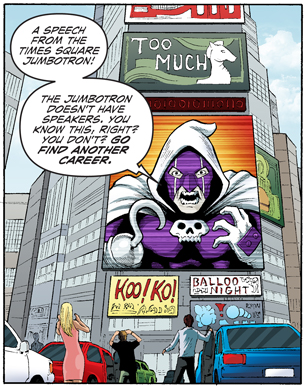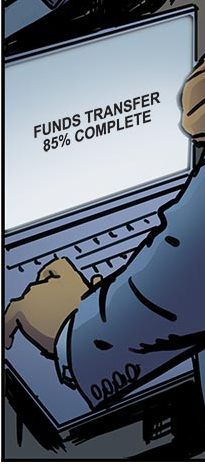Well, I really liked The Hobbit. Though I'm a Tolkien geek (let's go through the list: read all the appendices in LotR, read The Silmarillion twice, Unfinished Tales, both volumes of The Book of Lost Tales, and The Lays of Beleriand; I've got a couple more books in the set that I haven't gotten around to because you can only read so many different versions of The Children of Húrin before you need a break) and I can understand the mixed reviews from people whose hearts aren't filled with joy at hearing Gandalf's semantic deconstruction of the phrase "Good morning."
Let me start off by saying, I saw the IMAX 3D version, but not the HFR version -- my local IMAX is still equipped with a film projector, no digital. (As such I didn't see the Star Trek feature or any trailers, either.) So I can't speak to HFR. The comments I've heard from family who have range from "It didn't make much difference" to "It gave me a headache, and the CG characters looked great but the human actors looked terrible."
All that said: there are plenty of other eccentricities to the film, and while I think they all come out okay, I can see why there's disagreement.
(Spoilers follow. Though I think they're pretty minor, all things considered.)
Foremost, It's the first of three three-hour movies adapted from a book that could be comfortably translated to 90 minutes.
And, related, it achieves that length by padding it out with tonally-inconsistent material from other books.
Much of which includes appearances by characters who aren't in the book, most of them from the LotR films.
Truth be told, I'm okay with all those things.
First: the reality is, while The Hobbit the book is a standalone novel which was published prior to Lord of the Rings, The Hobbit the films are prequels to an already-successful movie trilogy. There are different expectations here -- and for continuity's sake, the audience wants to see familiar actors reprising their roles.
That said, none of it felt tacked-on to me. Even the framing sequence with Ian Holm and Elijah Wood -- well, okay, so it seems to imply that Bilbo wrote the whole book in a single day and that seems pretty nutty, but aside from that, it provides a sense of continuity with the LotR films, and also allows Holm to narrate the Dwarves' backstory.
Which I suppose brings me to the point of extraneous material: while this film pads out The Hobbit with material from other books (mostly Unfinished Tales), it adapts that material faithfully. There are some liberties here and there (like the White Council meeting in Rivendell instead of Lothlórien), but on the whole it's true to the backstory that Tolkien wrote.
And the thing is, considering The Hobbit as prequel instead of a standalone work, it's important to include the portions of the story that lead into Lord of the Rings. The Necromancer in Dol Guldur? Not only does that story lay the groundwork for LotR, it's also central to Gandalf's motivation. Why is the world's greatest wizard interested in thirteen Dwarves' quest to slay a dragon? Because he doesn't want Sauron to have a dragon. In The Hobbit as a standalone work, that's not really important -- Gandalf's just a mysterious and eccentric old wizard -- but coming from Lord of the Rings first, people are bound to wonder just what he's doing with Thorin's company, and where he's going all those times he wanders off. (And I'm hoping the sequels delve a little deeper into his meeting with Thráin.)
And to that end, bringing in Galadriel and Saruman for a powwow isn't just a tacked-on scene -- it's part of Gandalf's story. And moving it from Lothlórien to Rivendell makes good narrative sense. Plus it gives the movie a chance to depict Elrond in a way that's more consistent with Lord of the Rings -- because let's be honest here, in the books Elrond in The Hobbit and Elrond in LotR may as well be different characters.
(Poor old Christopher Lee, by the way -- he's really not looking so good. And am I correct in thinking he was green-screened in and wasn't even filmed in the same room with the other three actors? Nevertheless, it was good to see him and I'm glad he was in good enough health to shoot the scene.)
The downside, I suppose, is that it does bring in those tonal inconsistencies I mentioned. The Hobbit is a children's fairytale, while Lord of the Rings is an epic myth. They're very different books, written for different audiences -- and the movie version of The Hobbit tries to be both.
Personally I think it succeeds -- I think it does a great job of mixing the light elements of the Bilbo story with the darker ones of Gandalf's, and the Dwarves' backstory -- but I'll acknowledge there's something regrettable about a Hobbit movie that you wouldn't want to take your kids to see, lest the on-screen decapitation of Thrór give them nightmares.
That said, I'm perfectly all right with the trolls resembling the Three Stooges and the Great Goblin being a disgusting, bullfrog-throated wretch played by Barry "Dame Edna" Humphries. There may be some fans (casual or Serious) who don't care for those depictions, but I think they fit the story just fine.
And then there's Radagast. His part of the story is probably the biggest departure from Tolkien's work, but, perhaps not coincidentally, was my favorite. Sylvester McCoy plays him as a wonderfully batty character who is nonetheless wise and compassionate -- not to mention a damn fine wizard. And Gandalf's respect for him, and Saruman's lack thereof, perfectly encapsulate the difference between those two characters: Gandalf sees the value in those who seem humble, meek, weak, or just plain weird, while Saruman's arrogance blinds him to the nature of true power. It's the same mistake he makes in judging Hobbits (though that's got the added dash of hypocrisy that he's quite happy to drink their wine and smoke their pipe-weed).
Which I suppose brings me to another criticism: We've seen this all before. Bilbo's opening narration about the fall of Erebor mirrors Galadriel's narration about the fall of Sauron in Fellowship of the Ring; the battle outside the gates of Moria looks an awful lot like that battle, too. (An aside: nice touch having Balin tell the story of the Dwarves' attempt to recapture Moria. I'm guessing most of the audience won't make the connection to Balin's Tomb in Fellowship, but it's a good bit for the fans.) The escape from Goblin Town is like the escape from Khazad-Dûm re-staged as a comedy. Hell, they even work Weathertop in there.
So, for all of that, I can see how this movie can feel like more of the same -- redundant, maybe even unnecessary.
But for my part, it didn't seem that way -- in fact, I'd say I really enjoyed the hell out of it.

